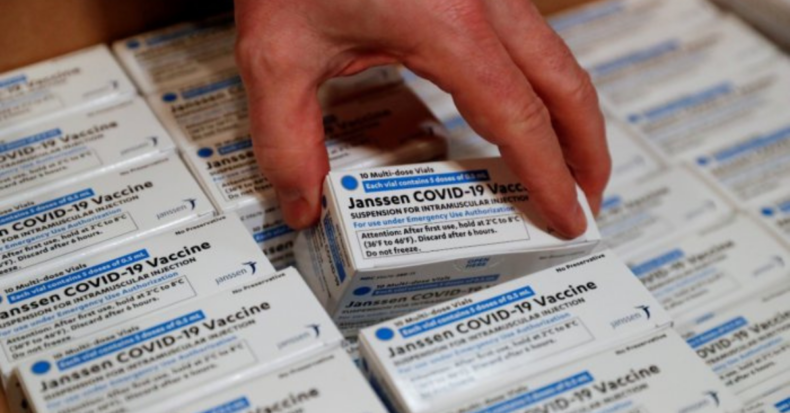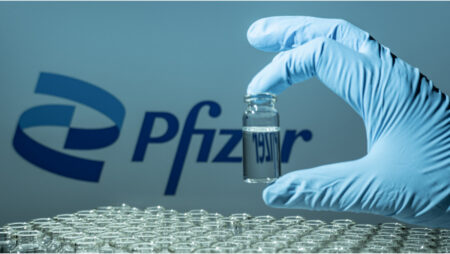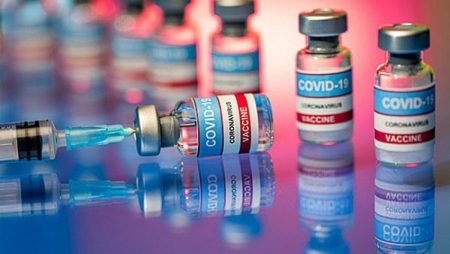Johnson & Johnson announced data aiding the use of its COVID-19 vaccine as a booster shot for people formerly vaccinated with its single-shot dose. Covishield, Covaxin vaccine, and Sputnik V are currently being used for vaccination in the country.
Earlier it was esteemed that a single trial of their vaccine fosters solid and robust immune responses that are persistent and substantial through eight months after immunization.
A new booster will likely hit the Indian market by October, manufactured by Hyderabad-based biopharmaceutical company Biological E limited. Johnson & Johnson’s single-shot dose is the fifth inoculation to get the Drug Controller General of India’s approval for Emergency usage, as per Union Health minister Mansukh Mandaviya.
He tweeted, “India expands its inoculation basket and now has 5 Emergency Use Approved vaccines that will further boost our nation’s collective fight against COVID-19”.
As per the sources, the vaccine samples are expected to the Central Drugs Laboratory, Kasauli, and National Centre for Cell Science, Pune, for testing next week.
How is it different from the other available vaccines?
At present, Johnson & Johnson’s COVID vaccine is the only single-dose vaccine shot available, which segregates it from others.
Janssen Covid dose is a viral vector vaccine that uses another virus to kindle antibodies to fight lethal pathogens. It whips up a favored response with the help of a tailored version of a different virus known as a vector.
It immunes us against the severe acute respiratory syndrome coronavirus 2 (SARS-CoV-2).
Effectiveness
According to the Food and Drug Administration (FDA), Johnson & Johnson’s booster can provide immunity against mild to moderate and severe to critical Covid cases. It is 72% effective at fighting all forms of the SARS-CoV-2 virus and up to 86% efficient in preventing severe disease cases.
Even though people vaccinated with the Johnson & Johnson covid booster are likely to catch the disease, they are highly immune to severe infection, hospitalization and death.
Clinical reports suggest that a single dose of this vaccine fosters a solid immune response in people so far, and the antibody can last unaffected for up to 71 days and more; a booster shot might likely come into the picture in the future.
The Janssen inoculation will be given as an injection into the muscle, and it’s a single dose.
Dos and Don’ts of the Vaccine
• You should mention your medical history (if any) to the vaccine provider beforehand. It could be an allergy, fever, bleeding disorder, pregnancy, breastfeeding, or even if you have taken any other COVID vaccine before.
• You should not take the Janssen vaccine if you have a severe allergy to any of the ingredients of this vaccine.
Side-effects of the vaccine
Few side-effects of the Janssen vaccine have been recorded, including:
• You may experience soreness, redness of the skin, and swelling at the injection point.
• You may also encounter headaches, tiredness, muscle ache, nausea, and fever after taking the vaccine.
• It may cause a severe allergic reaction in some people (difficulty breathing, swelling of your face and throat, increased heartbeat, a case of rash, dizziness, and weakness).
Some people also experienced blood clots with low levels of platelets after receiving the Janssen Covid-19 vaccine. The symptoms began to show roughly 7-15 days following the vaccination.
Though the chance of having this type of severe reaction is remote, it is advised to seek immediate medical attention if any of the symptoms show up, including:
• Shortness of breath
• Chest pain
• Swollen legs
• Abdominal pain
• Constant headache or blurry vision
• Tiny blood spots under the skin beyond the injection site.
The symptoms, as mentioned earlier, might not be all the possible side effects of the Johnson & Johnson vaccine. Abrupt and severe effects may occur; hence, the vaccine is still being examined in clinical trials.












